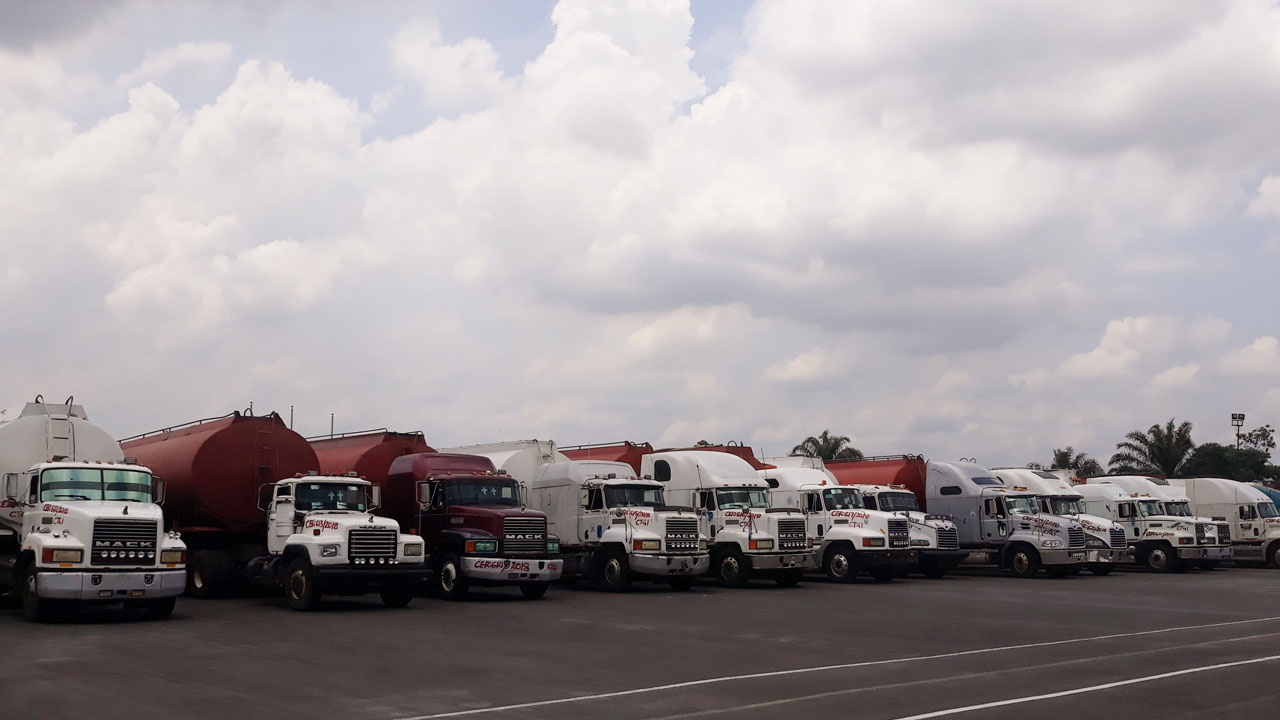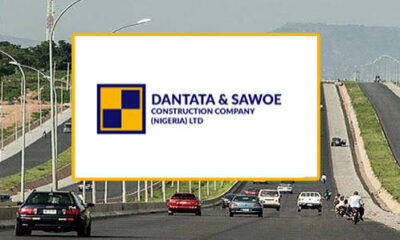Opinion
End rascality, vested interests in Nigeria’s downstream petroleum industry now

The confrontation between Dangote Refinery, Petroleum and Natural Gas Senior Staff Association of Nigeria (PENGASSAN), Depot and Petroleum Products Marketers Association of Nigeria (DAPPMAN) and other players has once again exposed the depth of the rascality and rot that Nigeria has allowed in its downstream segment of the petroleum industry. What should have been a symbol of national pride, energy stability, and economic resilience has degenerated into a theatre of disputes, ego battles, and crippling vested interests.
When the $20 billion Dangote Refinery was commissioned, Nigeria and other countries, especially within Africa, celebrated what should mark a turning point in the struggle against energy security and independence. The refinery took away the shame and stigma that Nigeria had as an import-dependent crude oil producer that relied on subsidies and was unable to fix state-owned refineries despite billions of dollars spent on turnaround maintenance.
But recent developments have turned the refinery into a centrepiece of rancour. Gradually, the crisis generated from fuel, labour, or pricing alone to reveal deeper national character, especially how Nigeria mismanages opportunities, allows vested interests to subvert progress, and permits regulatory inertia to embolden monopolistic practices.
Since the Dangote Refinery started operations, the operator has had a running battle with the Nigerian National Petroleum Company Limited over the supply of crude oil and offtake of products. The same crisis extended to the International Oil Companies (IOCs), tanker drivers, major marketers, as well as DAPPMAN. This faltering crisis over power bloc and market control is a shameful national embarrassment, with the last straw, particularly the strike action by PENGASSAN, now plunging Nigeria into avoidable chaos and sabotage at a time when global energy dynamics demand stability and foresight, and the local economy demands strengthening.
The tragedy is that these disputes fester unchecked because regulators like the Nigerian Midstream and Downstream Petroleum Regulatory Authority (NMDPRA) and the Federal Competition and Consumer Protection Commission (FCCPC) have been complacent. Their timidity has emboldened all sides to play dirty. Rather than enforcing transparency and competition, the regulators stand paralysed, watching a sector vital to Nigeria’s survival descend into brinkmanship.
There have been a few accusations that the marketers, especially DAPPMAN, have brought against Dangote. The accusations are centred on the violation of section 213 of the Petroleum Industry Act (PIA), which forbids a licensee or permit holder from discriminating between customers or classes of customers in respect of access or terms of access to any facility. The other accusations centre on the Federal Competition and Consumer Protection Act, section 72, which prohibits dominant firms from imposing conditions unrelated to the object of the contract, which includes discriminatory or exclusionary terms that hinder competition.
Their arguments are that Dangote Refinery works with selected marketers to set pump prices, sells products below import parity price in targeted corridors despite publicly stating that its cost of production is higher than import parity, predatory pricing to exclude rivals and later recoups those losses through supra-competitive pricing. They have also expressed grievances over how Dangote Refinery allegedly denies or delays coastal sales and loading access to some marketers while giving preferred terms to others, insisting that the development forecloses independent distributors, enables price discrimination, and reduces consumer choice.
They are also concerned over Dangote’s control of trucking and distribution, under the guise of separate management, noting that it has the effect of foreclosing independent distributors. When one firm controls refining, trucking, and wholesale, the market ceases to be free.
For decades, DAPPMAN and its members turned fuel importation into a racket that bled Nigeria dry. Dangote’s allegations against them are serious and credible, especially the preference for importation over local production. The refinery claims that petrol importers routinely inflate daily consumption figures. These inflated numbers served as justification for fraudulent subsidy payments, crude swap deals, and equalisation fund claims. For years, the Nigerian treasury haemorrhaged trillions while citizens queued endlessly at petrol stations.
The accusations over the importation of adulterated petrol containing over 15 per cent methanol, damaging thousands of vehicles nationwide, also remained a national embarrassment, demanding a forensic audit of importers’ records, subsidy claims, and equalisation fund payments.
On the other hand, reports that the refinery restricts unionisation and manipulates driver pools are disturbing. Workers have a constitutional right to unionise. Mass sackings over allegations of “sabotage” send the wrong message in a democracy.
These practices, if verified, are deeply damaging. A refinery built to guarantee energy security cannot morph into a monopoly that dictates terms to a whole nation.
However, while workers’ rights must be protected and Dangote advised against muzzling unions, unions must not reduce a national energy project into a bargaining chip for narrow concessions. Sabotage, threats, or political posturing will only worsen supply instability and fuel inflation. The suspended strike by PENGASSAN was therefore unwarranted and condemnable.
Labour must defend workers, but it must also defend Nigerians who suffer the brunt of scarcity, inflation, and job losses. To hide behind labour activism while fuelling disruption is irresponsible. Turning off feedstock supply to the Dangote Refinery has set the wrong precedent for Nigeria’s refining ambitions. It is also a discouragement to investment and threatens national security.
In all of these, the greatest failure lies squarely with the NMDPRA and FCCPC. These bodies are not bystanders. They are empowered under the law to enforce open access, stop price manipulation, prevent anti-competitive behaviour, and sanction malpractice.
Why then have they remained silent while marketers, unions, and Dangote trade accusations? Why have they failed to publish credible, independently audited consumption data? Why are forensic audits not already underway? Why are open-access rules not enforced?
There could be enough blame to go around, but by failing to act, the regulators have allowed the sector to slip into a lawless tug-of-war where everyone loses.
Nigeria must remember that the refinery is not about Dangote, DAPPMAN, or unions. It is about Nigerians, the over 200 million people whose lives and livelihoods depend on affordable and reliable energy. The interest of one man or one group cannot be bigger than the interest of all.
The government must urgently restore order in the downstream sector by publishing credible fuel consumption data, keeping 25–30 per cent of supply open to imports as a price check, especially in the absence of competitive producers, enforcing open access to facilities, auditing marketers for past subsidy fraud, safeguarding workers’ union rights while urging labour to act responsibly, and strengthening regulators to enforce laws without fear or favour.
Nigeria cannot return to the days of being a dumping ground for imported fuel, riddled with fraud and scarcity. But neither can it replace that racket with a new monopoly that strangles competition. The balance lies in a transparent, competitive market where no player, whether Dangote, DAPPMAN, or labour unions, holds the nation hostage.
•Written By Guardian Newspaper Editorial Board
-

 African News19 hours ago
African News19 hours ago11 gunned down as mass shooting rocks South Africa
-

 Politics3 hours ago
Politics3 hours agoOsun gov’ship: My disqualification a huge joke – Omisore
-

 Opinion3 hours ago
Opinion3 hours agoInsecurity and plenty conspiracy theories
-

 Business17 hours ago
Business17 hours agoBREAKING: Dantata & Sawoe ‘pays’ consultant $1.4 million Dangote project debt in bid to escape liquidation
-

 Politics2 hours ago
Politics2 hours agoHow APC, ADC Benefit From PDP Crisis
-

 Business3 hours ago
Business3 hours agoCAC To Ban Unregistered PoS Operators From Jan 1
-

 News2 hours ago
News2 hours agoBrazilian Ship Intercepted with 25.5kg Cocaine at Lagos Port
-

 News24 hours ago
News24 hours agoReport Of My Arrest In France Fake – Wike


















